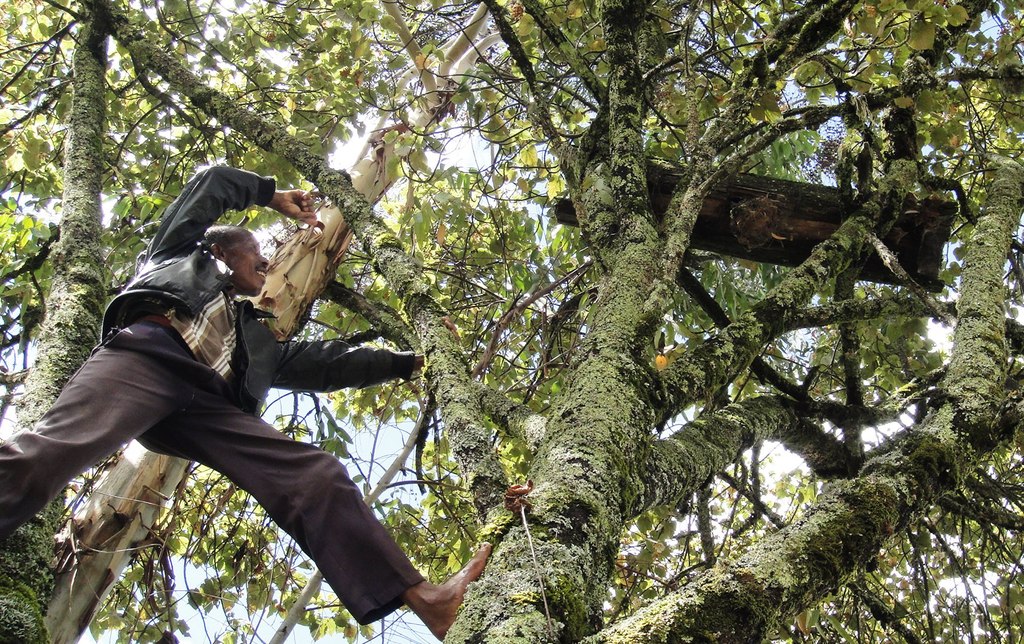
Water harvesting and storage in trenches is helping a Machakos County fruit farmer in keeping his crops productive for more than two months after the rains in this semi arid region.
Muia Kusenga’s five acre piece of land has about 20, six-by-three feet trenches, running from one end of the farm to the other.
The cavities, which are about 150 metres long, collect water directed from the nearby tunnels under the Machakos-Kathiani Road into his farm.
Although he cannot tell the exact volume of the trenches at full capacity, Kusenga said, the water collected sustains his farm for up to between two and two and a half months after long rains.
“During the construction of the road, my neighbours opposed the direct water tunnels for fear they could cause soil erosion. I asked the engineers to give me the water. It is a lot. Filling all the trenches requires about a week of heavy rainfall,” he said.
When Farmbiz Africa toured the farm some trenches had little water gathered during the April rains.
The 82-year-old farmer, who has more than 50 different fruits in his ‘Garden of Eden’, has interconnected the trenches at one end to deliver extra water to the next one.
Fertility in silt
But after the first one, Kusenga has placed a pipe that takes overflowing water into a nearby water tank whose capacity is more than 20,000 litres.
Besides water collection, Kusenga harvests fertile silt, which accumulates in the trenches, from the cuplike depression at the base.
“When the trenches run dry, I collect the silt then add it to the soil. It is my fertiliser. Organic matters collected decompose into manure,” he said.
READ ALSO:Soil erosion wipes nutrients and incomes
Control soil erosion
They also help him in controlling soil erosion on that farm, which is on the hilly Mutitu Village, Kaviani.
Because he has dug them at intervals of about 10 metres, the speed of surface run-off is minimum. Although he does the manual irrigation, the deep rooted crops also can draw the water directly from the reservoirs.
READ ALSO: One Machakos 'Garden of Eden' tree bears multiple fruit varieties
Numerous taps are strategically located in his farm to deliver the water from the tank after the reservoirs are depleted. Notably, crops like yams, which require a lot of water to survive, are thriving in Kusenga’s farm.
Write comment (0 Comments)















